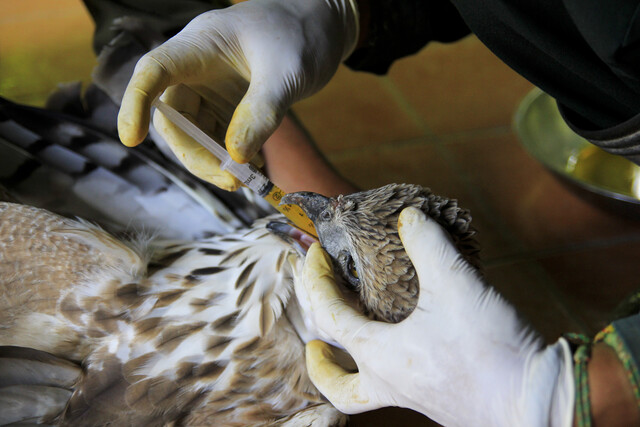Top 7 Qualities to Look for When Adding a Member to Your Business Team
You have decided to add a new member to your team! The reasons could be numerous ranging from replacing a member that left to responding to growth and needing to expand. This is an important step because choosing the right candidate can make or break the team. What are the qualities that are so important to ensure continued or expanded success? Whom do you want to work with? Somebody with a great attitude that is enthusiastic and reliable. They solve problems and take a fresh creative approach but also communicate the challenges encountered. They communicate both within their group and to other departments. They are curious and love to learn. They bring new ideas for old problems. Perseverance is the magic sauce that binds the problem solving, great attitude and communication style. Of course, the right skill set or competency is important. However, keep in mind that some things can be taught to the right person that loves to learn and will add new skills to the team. All of these things are imperative to choosing the right person for your team.
Great Attitude
A positive attitude is necessary for any member of the team and especially when expanding. The person needs to be able to work well with a team and collaborate. This includes focusing on the success as a team rather than their individual success. The new person will need to be able to determine the personalities that already exist on the team, learn the company culture and contribute. Enthusiasm is contagious and provides a motivational force to tackle the tough challenges that lay ahead. A motivator will help to set the stage and continue to grow the teams' productivity. The new member of the team should be approachable so that others will openly communicate with them. The positive attitude also opens the door for creativity and problem solving. The person should be open to other's opinions and receptive to feedback.
If the person is an internal employee then you will have an opportunity to see some of these traits in action. If the person is an external interviewee, prepare some scenario or situational questions to gauge their capacity for this quality. Some characteristics to look for in a potential new team member include:
- They should smile.
- They actively engage in the conversation.
- They are able to respond professionally when they do not agree with an approach or idea.
- They take an interest in others on the team.
- They are a cheerleader and support others even if they do not directly report to them.
- They are not afraid to go outside of their comfort zone. This can be gauged with targeted questions or simulated scenario to place them outside of their comfort zone.
- They take an interest in the team's success and ask questions.
- They take an interest in those around them. This is observable based on conversations with them and watching them interact with others.
- They are comfortable working with diverse personalities.
- They are professional and cheerful. How do they treat others such as the receptionist, waiter, janitor or junior staff?
- They seek out answers even if it is outside of their specialty.
- They are passionate about their field.
- They are passionate about your company.
- They are passionate about the team's success.
A good way to gauge the potential team member's attitude is to think about if you would be willing to get stuck in an elevator with them or could see yourself on an extended business trip with them.
Trustworthy
The ideal team member will be trustworthy and reliable. They need to be able to have integrity so they abide by any requirements even under a great deal of stress. This way you will not worry about how they received their results. You also need to count on them to become invested in the team's success in order to meet their deadlines and trust they will speak up if falling behind schedule or getting ahead of schedule. Below are some examples of behavior to look for when searching for the new team member.
- Reliability includes regular attendance and consistent work products. This includes consistency in the quality of the assignments completed. The way the team member responded in the past regarding assignments and attendance can be a gauge to how they will function on your team. However, there are some situations where this does not apply so interview questions or scenario testing should be used in conjunction to provide a complete picture of the new member's capabilities.
- A trustworthy team member will build trust within their group and bring a safe environment for honest discussions to occur. This does not mean they avoid disagreement but can be an active member in turning conflict into strengths that incorporates solutions to address concerns raised.
- You need to know the team member will work within your company's policies and guidelines. You can count on them to know when they need to seek permission before deviating from established procedure. Determine if the new team member will have the authority to run with ideas. If so, provide a couple of scenario questions during the interview period to determine if they would be comfortable with this type of freedom. Inquire if they have had this type of authority before and request they provide examples. They will also have the integrity to communicate risks encountered or identified.
- They need to have the integrity required to allow others to receive credit and avoid exaggerating their contributions. Their history and response to previous questions where they supplied examples will give an idea if they are comfortable sharing the success. The potential team member will differentiate if it was the team's performance or his own performance for their previous success.
The team member needs to work well with others and consider the overall success of the team. They need to deliver assignments when needed and help others on the team. They need to produce the highest quality work they are capable of producing. They need to respond truthfully to questions without being mean spirited. These qualities set the baseline of the group's productivity.
Problem Solving and Creativity
The new team member should be eager or have a willingness to learn from the company, other team members and integrate their previous experience. They need to have solid problem solving skills in order to determine the root cause of issues so they can reframe the question for greater creative solutions. They also need to understand what works well in order to avoid changing the wrong aspect of the problem. They will keep up their knowledge base and identify upcoming trends in order to position your team for the future. They will also learn from other's mistakes in order to understand what to avoid with your team. The new member should understand that ideas could come from anywhere and be unafraid to look outside of their field. Look for the following characteristics in your next team member.
- The team member should be curious about the process and strategic goals of the company. This will increase the chance they become invested in your success. Their passion can spark creative proposals and desire to learn the entire process.
- The team member should be able to inspire creativity and problem solving among members of your existing team.
- They will be able to reframe the problem multiple ways depending on the communication style of the other members. This can take both creativity and empathy to determine how to change the communication style based on another's needs.
- They will be able to recognize assumptions made in order to document and challenge them. If they have senior-level experience, they should be able to communicate how any changes to laws, policies or procedures would affect the team. If they have entry-level experience, they should be able to research any changes and work with senior level staff to determine any impacts.
- They should be unafraid of failure to try new methods. However, they will understand when they have the luxury for trial and error and when it is prudent to go with a tried and true system.
- They build on other's ideas and solutions in order to elevate the entire team.
- They understand their weaknesses in order to avoid relying on them too heavily until they improve their skill set. They know how to leverage their strengths in different scenarios that best benefits the team.
Problem solving and creativity are more difficult to learn so it is to your benefit when these qualities are present before they join your team. These qualities can make the difference between an average and exceptional team. They are also some of the hardest to determine during an interview or singular conversation. Consider using writing assignments, scenario testing and conversations with references to confirm these skills.
Communication
Communication skills are a vital component you will be looking for in your new team member. Communication includes verbal, written and body language. They should be able to provide and equally receive communication. Be prepared to work with the new member if they need to learn new terminology or jargon associated with your company. Great communication skills will make them approachable, provides creditability, enhances their reputation and the reputation of your team. Some examples to look for include:
- The team member provides examples and makes logical connections during the interview or conversations.
- They can communicate their knowledge, skills and ideas effectively. The needs of your existing team and overall organization will determine if the new member is too concise or overly verbose.
- The new team member can adapt their communication style between colleagues, leadership and external market. This ensures the idea or message is received on the other end of the conversation. It also ensures the new member can process new information received through active listening and adapt accordingly.
- They need to be able to communicate in writing as well. They should be able to anticipate questions asked by the receiver. The new team member should enhance understanding of the audience with the ability to translate abstract or complicated messages. Consider a writing sample to ensure their communication style meets your needs or would work with your group.
- The new member should be respectful in how they respond and communicate with those that disagree with them. They should be able to actively listen, ask clarifying questions and reframe their position accordingly.
- The team member should exhibit the ability to change their position if presented with new data.
- They should be aware of the message delivered by their body language. Be aware that nerves could be showing in the body language during an interview. Also consider that introverts and extroverts may have different approaches but still deliver the same message. Some things to look for during the interview is if the new member pulls in closer or pushes away during discussions. You want to avoid overly aggressive body language as they may have difficulty with collaboration in a team environment.
Communication is the glue that ties all the other qualities and skills together into one package that will enhance your team. A good communicator can help keep your team visible by highlighting successes to other departments or other organizations. Great communication can also improve the desirability of others wanting to join your team.
Learning and Curiosity
Curiosity and ability to learn are essential skills for any team, especially a new team member. It will also provide the opportunity to ensure your team remains visible and your organization's reputation would improve. The ability to learn will also allow greater agility that is necessary to adapt to the inevitable changes that will occur. The ability to learn and the required curiosity are very difficult to ascertain during the actual process of choosing your next team member. You will need to rely on some secondary indicators, past performance, the new member's reputation and the interview process.
What kind of creative skills do you need for your team? You need to determine what you do not need because you do not want all the members to have the same style or they will have a collective blind spot. Some characteristics that would assist you in your quest for the next team member include:
- The team member should belong to professional membership organizations. This shows their interest in maintaining their knowledgebase and provides an opportunity to catch trends early. They should also participate on any teams, boards or groups in order to show visibility for your organization.
- People are more apt to listen and accept authority from somebody considered a subject matter expert. Is the new member functioning as a subject matter expert? It can be beneficial to have instant creditability on your team. If not, will the team member be willing to become a subject matter expert?
- Do others go to them for assistance with developing creative solutions?
- The new team member should regularly attend training or even provide training on a subject critical to your team.
- They should ask questions about the current process and about the company's direction. Based on information received, they should identify problems and offer solutions.
- Do they understand what you do? The new team member would understand what competitors are doing and determine what differentiates your team from other groups.
- The team member should enjoy learning and teaching without regard to ego. They should enjoy learning from those traditional senior employees but also from junior employees without being condescending.
- They should be able to elaborate their involvement on previous teams or similar experience. The new member should explain what results were achieved and what they have learned. This should include a discussion of lessons learned when things did not turn out as expected.
Learning is a continual process and curiosity is the method that distinguishes the average employee from the high performing employee. This will also ensure they can strengthen all the other qualities you are looking for in a new team member.
Perseverance
Perseverance will be an indicator of your team's overall success. This is a skill that can get your team through those rough patches when an easy solution is not identifiable or if there are multiple issues to resolve concurrently. The new team member will also need to have perseverance to work through the acclimation period of integrating with their new colleagues. You will have to rely on their previous experience and reputation to gauge their perseverance level. Some specific characteristics to look for include:
- The team member should be able to provide examples showing how they have responded to previous challenges. Consider if their emotional response and if their actions coincide with the requirements to effectively collaborate with your existing team.
- The new member should know the difference between persevering and when they need to change direction. Will they be able to let go of an issue if necessary to focus on another assignment? Consider providing a simulated scenario to confirm they can change directions.
- They should be able to combine perseverance with their other skills to create a solid performance. Ask for examples that display how perseverance resulted in success.
- The team member should have the ability to motivate others on the team and tap into their perseverance by not losing sight of the result.
- It can take a while for new ideas and new trends to be implemented within an established team. Accurately identifying trends also takes some time. The new member should have the patience to identify trends and bring new ideas to the team. They will need perseverance in order to help position your team accordingly.
Perseverance enhances the other qualities you are looking for in order to provide the best holistic package you seek in a new team member.
Competency
The one quality that most immediately think of is to ensure the new team member has the appropriate competency to contribute to the team. This essentially ensures the new member could perform the work and has the experience necessary to be successful. There is a reason this was chosen as the last quality. You will receive more applications and requests to join your team from those with the experience necessary to do the work. You are looking for those that will enhance your team and take it to the next level. You probably are more comfortable with what you are looking for with respect to work related skills. Take the time to identify which competencies can be taught if needed and which are critical to the role you want for the new team member. Determine if there any formal education, certification or licensing requirements. Some characteristics to look for that showcase high competency are:
- The team member should have performed similar work previously and can provide examples.
- They should demonstrate the aptitude to identify and fill their skill gap.
- The potential team member must understand their weaknesses and strengths.
- They understand how to obtain information that is unknown to them.
- They understand the difference between being efficient and being effective. They demonstrate the ability to be both.
- The team member has transferrable experience and can provide a fresh perspective.
- They may hold certifications or licenses that are outside of your traditional need. Can they correlate the benefit to your team?
The new team member may also be a subject matter expert in the field. They may have been published articles or books as an expert. Competency is the easiest of these seven qualities that can be taught partly because there are numerous training courses available for most skill sets.
Conclusion
There are many variables depending on your specific needs for finding the perfect new team member. The seven qualities discussed are universal and provide a solid foundation for your quest of completing your team. Carefully consider your needs and if the new member will be a shared resource or solely for your team. If they will be a shared resource then these qualities are still applicable but you will need to look for a broader spectrum when considering how they exhibit these characteristics. Expand the list based on your needs since each team requirements are unique.

























